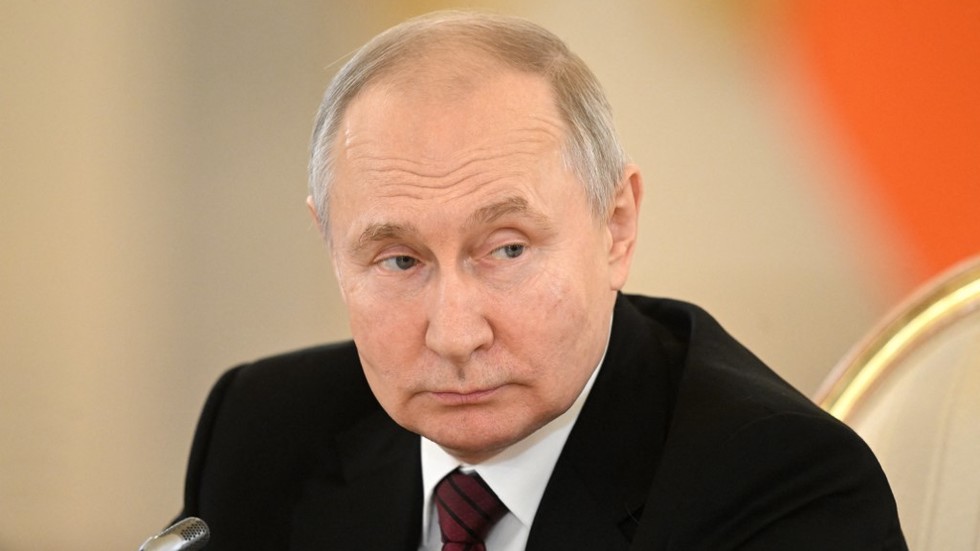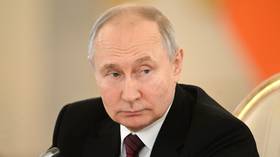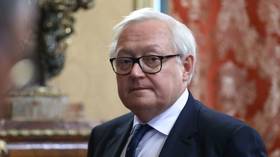
Arresting the Russian president would be “a declaration of war,” Minister in the Presidency Khumbudzo Ntshavheni has said

Vladimir Putin chairs a meeting of the Supreme Eurasian Economic Council at the Kremlin in Moscow, Russia, May 25, 2023 Ilya PITALEV / SPUTNIK / AFP © AFP / Ilya Pitalev
South Africa will not enforce the International Criminal Court’s warrant for the arrest of Russian President Vladimir Putin, Minister in the Presidency Khumbudzo Ntshavheni told reporters on Thursday.
“The Deputy Chairperson of the Security Council of Russia has indicated that anyone who arrests President Putin will be tantamount to a declaration of war,” Ntshavheni said, referring to a statement by Dmitry Medvedev in March.
At the time, Medvedev declared that if Putin were to be arrested by “say, Germany… all our missiles would fly to the Bundestag, to the Chancellor’s office.”
“I don’t think this country wants us to declare war with Russia,” Ntshavheni added.
In mid-March, the International Criminal Court (ICC) issued arrest warrants for Russian President Vladimir Putin and Maria Lvova-Belova, the presidential commissioner for children’s rights. The court accused them of the “forcible transfer of population,” referring to Moscow’s efforts to evacuate children from combat zones amid hostilities with Ukraine.

Read more
As a signatory to the 2002 Rome Statute, South Africa is obliged to enforce the warrant. However, the country is also hosting this year’s BRICS summit in August, at which the leaders of the world’s largest emerging economies – Brazil, Russia, India, China and South Africa – are due to meet.
Despite media reports suggesting that South Africa had asked China to host the summit, Ntshavheni told reporters that “nothing has changed,” and that the meeting would still go ahead in Johannesburg as planned. Moscow dismissed those reports as a hoax last week.
Speaking to the BBC on Wednesday, Obed Bapela, a deputy minister in the South African presidency, said that the government was working on legislation that would make its national law outrank that of the ICC. If parliament passes the bill, Pretoria could then “give itself exemptions of who to arrest and who not to arrest,” Bapela explained.




